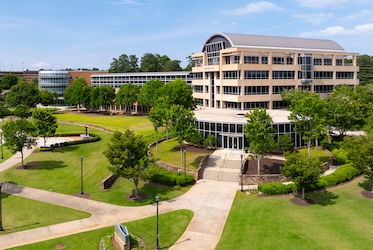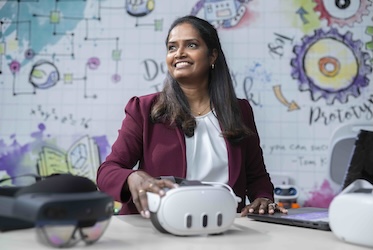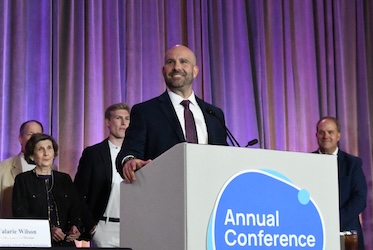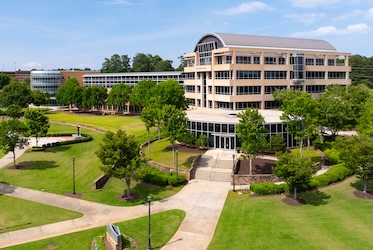

KENNESAW, Ga. | Nov 11, 2025

Preliminary findings from a study led by Mei-Lin Chang, professor at KSU’s Clarice C. and Leland H. Bagwell College of Education, suggest that restricting cell phone use during the school day has not only boosted student engagement but also improved teacher well-being and job satisfaction.
The research is part of a broader collaboration among Marietta City Schools, Emory University, and KSU. While Emory’s research team examined how the cell phone ban affected students’ mental health and learning, KSU’s study focused on how it influenced teachers.
“The district initially set out to improve student focus and mental health,” Chang said. “But they quickly noticed another unexpected outcome, teachers were reporting higher satisfaction and less stress.”
Teacher burnout has long been a national concern. According to recent RAND surveys, more than half of U.S. teachers report symptoms of depression or hopelessness, and enthusiasm for teaching has dropped significantly since the pandemic. In Georgia, the situation mirrors national trends, with teacher attrition and shortages on the rise.
“For many teachers, constant cell phone use in class was a daily frustration,” Chang said. “Imagine walking into a classroom where every student is looking at their phone instead of paying attention. Teachers feel they can’t connect with students the way they used to, and that’s incredibly discouraging.”
For the study, Chang and her team, Rachel Gaines and Johari Harris, surveyed teachers at two Marietta City schools — a sixth-grade academy and a middle school. At the sixth-grade academy, 100% of teachers agreed that the cell phone ban improved student engagement, classroom management, and peer interaction. Ninety percent reported feeling less stressed, more supported, and more fulfilled in their work. At the middle school, 80 to 92% of teachers echoed those positive outcomes.
“It’s rare in research to see 100 percent agreement,” Chang said. “That tells us this initiative made a real difference.”
The findings have already sparked statewide discussions. In August, Chang was invited to be a facilitator to discuss the issue at a Critical Issues Forum hosted by the Georgia Partnership for Excellence in Education at Emory University, where educators, policymakers, and students debated the role of cell phones in schools.
The project builds on a longstanding partnership between the Bagwell College of Education and Marietta City Schools, which have collaborated on literacy programs such as the Fast Start Academy summer reading initiative.
Director of Employee Relations Dayton Hibbs said the district values its partnership with KSU and believes collaborations like this study are crucial as school districts try to address teacher well-being.
“When making policy decisions, it’s essential that we measure impact and effectiveness,” Hibbs said. “Our partnership with KSU allowed us to apply high-quality research methods to evaluate whether the policy achieved its intended outcomes. The initial findings are promising, showing that informed policy decisions can strengthen learning environments and build trust among students, teachers, and families.”
– Story by Christin Senior

Kennesaw State among nation's top universities for online degrees in U.S. News rankings

KSU researcher using VR to improve STEM education

Kennesaw State alumnus nominated for National Superintendent of the Year honor

New literacy microcredential launches in partnership with KSU, Learn4Life, and Atlanta Speech School
A leader in innovative teaching and learning, Kennesaw State University offers undergraduate, graduate, and doctoral degrees to its more than 51,000 students. Kennesaw State is a member of the University System of Georgia with 11 academic colleges. The university's vibrant campus culture, diverse population, strong global ties, and entrepreneurial spirit draw students from throughout the country and the world. Kennesaw State is a Carnegie-designated doctoral research institution (R2), placing it among an elite group of only 8 percent of U.S. colleges and universities with an R1 or R2 status. For more information, visit kennesaw.edu.